
The East India Company (EIC) was an English, and later British, joint-stock company founded in 1600 and dissolved in 1874. It was formed to trade in the Indian Ocean region, initially with the East Indies, and later with East Asia. The company gained control of large parts of South Asia and Hong Kong. At its peak, the company was the largest corporation in the world by various measures and had its own armed forces in the form of the company's three presidency armies, totalling about 260,000 soldiers, twice the size of the British Army at certain times.
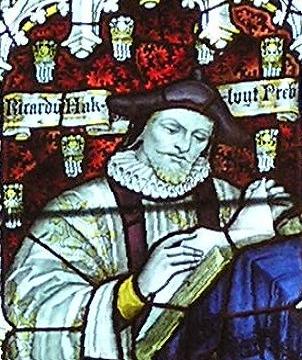
Richard Hakluyt was an English writer. He is known for promoting the English colonization of North America through his works, notably Divers Voyages Touching the Discoverie of America (1582) and The Principal Navigations, Voyages, Traffiques and Discoveries of the English Nation (1589–1600).
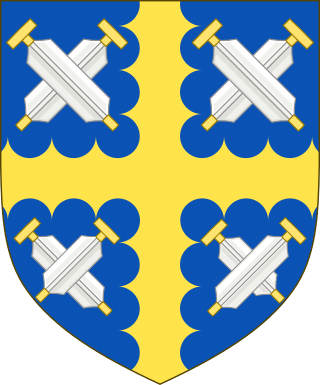
The Worshipful Company of Curriers is one of the ancient livery companies of London, associated with the leather trade.
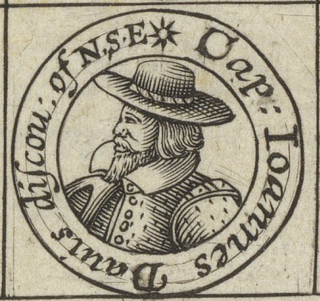
John Davis was one of the chief navigators of Queen Elizabeth I of England. He led several voyages to discover the Northwest Passage and served as pilot and captain on both Dutch and English voyages to the East Indies. He discovered the Falkland Islands in August 1592.

The Levant Company was an English chartered company formed in 1592. Elizabeth I of England approved its initial charter on 11 September 1592 when the Venice Company (1583) and the Turkey Company (1581) merged, because their charters had expired, as she was eager to maintain trade and political alliances with the Ottoman Empire. Its initial charter was good for seven years and was granted to Edward Osborne, Richard Staper, Thomas Smith and William Garrard with the purpose of regulating English trade with the Ottoman Empire and the Levant. The company remained in continuous existence until being superseded in 1825. A member of the company was known as a Turkey Merchant.
An amercement is a financial penalty in English law, common during the Middle Ages, imposed either by the court or by peers. The noun "amercement" lately derives from the verb to amerce, thus: the king amerces his subject, who offended some law. The term is of Anglo-Norman origin, and literally means "being at the mercy of": a-merce-ment.

Edward Maria Wingfield was a soldier, Member of Parliament (1593), and English colonist in America. He was the son of Thomas Maria Wingfield, and the grandson of Richard Wingfield.
The Company of Merchant Adventurers to New Lands was an early joint stock association, which began with private exploration and enterprise, and was to have been incorporated by King Edward VI in 1553, but received its full royal charter in 1555. It led to the commencement of English trade with Russia, Persia and elsewhere, and became known informally, and later formally, as the Muscovy Company.
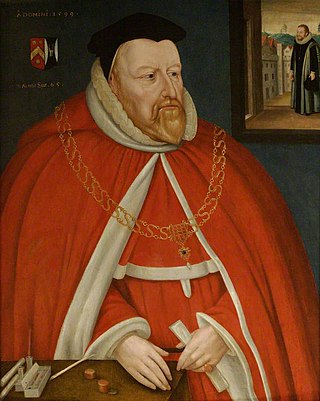
Sir William Peryam of Little Fulford, near Crediton in Devon, was an English judge who rose to the position of Lord Chief Baron of the Exchequer in 1593, and was knighted by Queen Elizabeth I.
Sir William Cockayne was a seventeenth-century merchant, alderman, and Lord Mayor of the City of London.
Events from the 1570s in England.

Sir Robert Mansell (1573–1656) was an admiral of the English Royal Navy and a Member of Parliament (MP), mostly for Welsh constituencies. His name was sometimes given as Mansfield and Maunsell.

Sir Leonard Holliday was a founder of the East India Company, and a Lord Mayor of London.

Thomas Williams was a Speaker of the House of Commons. He was a lawyer and a member of the Inner Temple, sat as MP for Exeter during the first and second Parliaments of Elizabeth I and was elected Speaker on 12 January 1563 and remained so until his unexpected death in 1566. His family home was Stowford House in the parish of Harford, Devon.
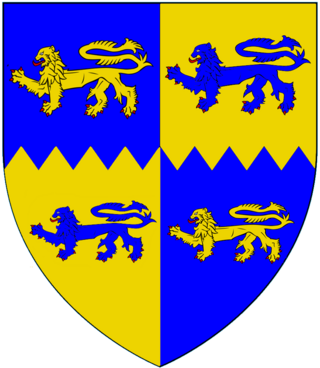
Edward Cromwell, 3rd Baron Cromwell was an English peer. He was the son of Henry Cromwell, 2nd Baron Cromwell by his wife Mary, daughter of John Paulet, 2nd Marquess of Winchester and his first wife Elizabeth Willoughby. His grandfather, Gregory, son of Thomas Cromwell, chief minister to Henry VIII, was created Baron Cromwell on 18 December 1540.

Sir Thomas Smythe was an English merchant, politician and colonial administrator. He was the first governor of the East India Company and treasurer of the Virginia Company from 1609 to 1620 until enveloped by scandal.
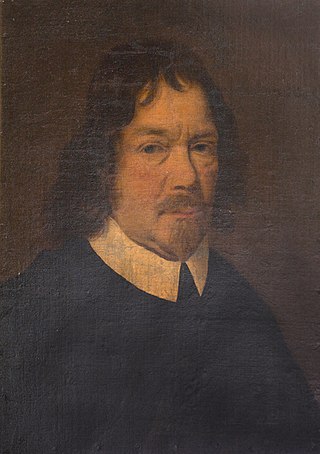
Sir William Pole (1561–1635) of Colcombe House in the parish of Colyton, and formerly of Shute House in the parish of Shute, both in Devon, was an English country gentleman and landowner, a colonial investor, Member of Parliament and, most notably, a historian and antiquarian of the County of Devon.

Richard Beaple of Barnstaple, Devon, was a wealthy merchant, ship owner and member of the Spanish Company, and was three times Mayor of Barnstaple in 1607, 1621 and 1635. His elaborate mural monument survives in St Peter's Church, Barnstaple.
Sir Edward Michelborne, sometimes written Michelbourn, was an English soldier, adventurer and explorer. After a military career in the 1590s he tried to be appointed 'principal commander' for the first voyage of the East India Company (EIC), but was rebuffed. He subsequently became an interloper with the personal approval of King James I and set out to the far east in December 1604. Indulging in plunder as well as seeking out trade, his activities upset the EIC who complained to the Privy Council about his interloping, following his return to England in 1606.















